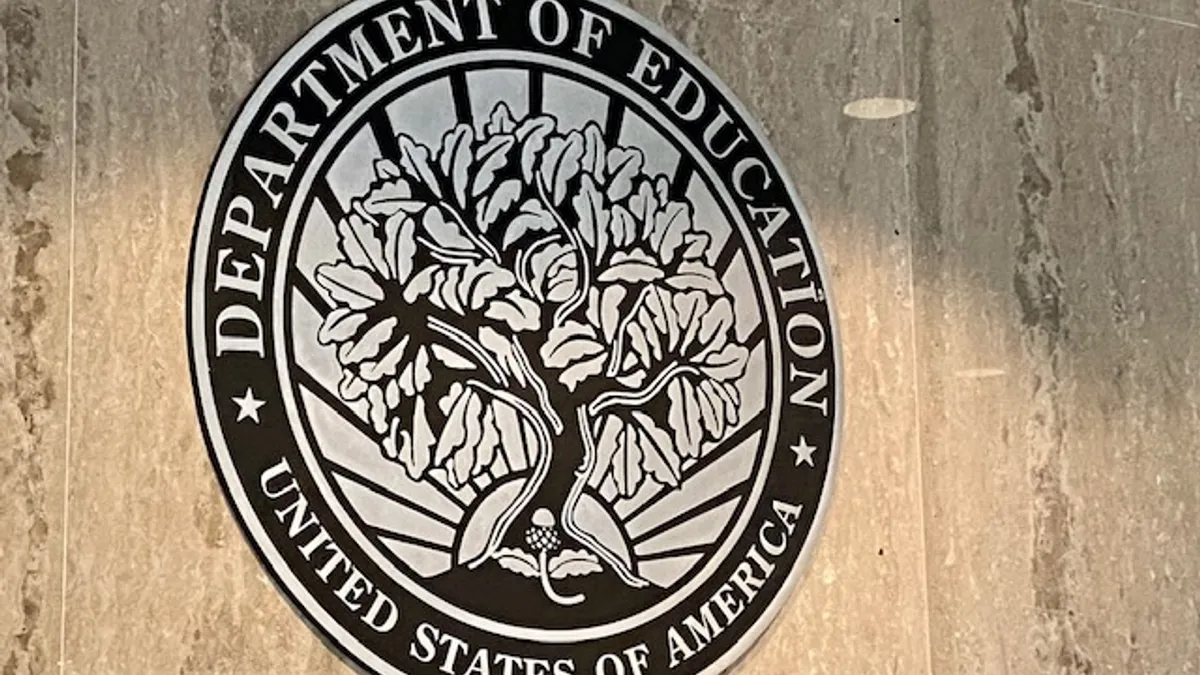Dive Brief:
- The U.S. Department of Education is once again pushing back the start date of a policy that would broaden the definition of colleges’ third-party vendors and impose stricter oversight on those providers.
- James Kvaal, the Education Department’s top higher ed official, announced Tuesday the guidance will no longer take effect Sept. 1. Kvaal said implementation of a final version, which the Education Department already delayed, will take place at least six months after the policy is published. He did not provide a more precise timeline.
- The Education Department also removed one of the most contentious elements of the policy, which would have banned colleges from working with foreign servicers or those with an owner or operator who is not an American citizen or permanent resident.
Dive Insight:
The Education Department stunned the higher ed world in February when it said it intended to vastly expand what it considers a third-party servicer, which are subject to more stringent regulatory requirements, like compliance auditing.
The policy drew so much concern and questions from colleges that the Education Department postponed in May when it would take effect, until Sept. 1.
Kvaal said in his public message Tuesday that the department received more than 1,000 comments weighing in on the guidance. Many colleges and companies have already started reviewing contracts to make sure they comply with it, he said.
Department officials “understand the concerns that can cause,” Kvaal said. “We are therefore providing additional time for institutions and companies to come into compliance with the guidance.”
Much of the hullabaloo centered around how online program managers, or OPMs, would generally fall under this new definition if they help colleges with recruiting, retention and educational content.
OPMs have exploded in popularity in recent years. The U.S. Government Accountability Office, a congressional audit agency, estimated last year at least 550 colleges have struck contracts with OPMs, but noted that was likely an undercount.
OPM critics have accused them of propping up low-quality programs and not being transparent with students about their role in recruitment and academic program planning.
A separate policy movement by the department would end OPMs’ ability to make money through revenue-sharing agreements with colleges.
2U, one of the most visible OPMs in the market, applauded the department’s decision to delay the third-party servicers guidance.
“As we've repeatedly emphasized, 2U fully supports the Department's stated transparency goals, and we welcome the opportunity to collaborate with the Department to find better ways to achieve those goals, in a manner consistent with law,” Matthew Norden, 2U’s chief legal officer, said in an emailed statement Tuesday.
The department on Wednesday also clarified that certain activities — like study abroad programs, and recruitment of foreign students not eligible for Title IV financial aid — do not constitute a third-party service.
Representatives from study abroad groups had raised concerns the guidance would in essence ban these types of programs.
“We will carefully review public comments on areas of confusion or concern and consider clarifying and narrowing the scope of the guidance in several areas, including software and computer services, student retention, and instructional content,” Kvaal said.
Virginia Foxx, a prominent House Republican and chair of its Committee on Education and the Workforce, slammed the delay Wednesday. In a statement, she urged the Education Department to abandon its “informal policy making charade.”
“There is something seriously wrong with the Department of Education’s operations if it must issue a blog post to clarify a guidance letter,” Foxx said. “It demonstrates incompetency, poor planning, a failure to think through the serious implications of its proposal, a lack of respect for the concerns of postsecondary institutions, and tone-deafness to private businesses and students.”










